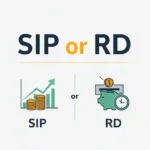Pursuing higher education can change your life, but it’s expensive. Luckily, education loans help students and families pay for school. This guide will help you get an education loan in India for 2024.
If you want to study at a top school or support your child’s education, this article is for you. We’ll cover education loan types, who can get them, interest rates, tax benefits, and the best lenders in India. We’ll also explain how to apply, repay, and handle loan defaults.
By the end of this article, you’ll know a lot about education loans in India. You’ll be ready to make smart financial choices. So, let’s start exploring education financing together.

Key Takeaways
- Comprehensive guide to securing education loans in India for 2024
- Understand the different types of education loans and their eligibility criteria
- Explore the interest rates, both fixed and floating, and the factors that affect them
- Discover the tax benefits associated with education loans
- Identify the top education loan providers in India, both public and private sector banks
- Learn about the education loan application process and the required documents
- Understand the repayment options and strategies for handling loan defaults
Understanding Education Loans
Education loans help people pay for higher education. They cover tuition, living costs, and more. Knowing about education loans is key to finding the right one for your education.
What is an Education Loan?
An education loan lets students or their families borrow money for school. Banks, financial institutions, or government agencies offer these loans. They help fund various educational programs, from undergrad to professional courses.
Types of Education Loans
There are several types of education loans in India:
- Student Loans: These are for students to pay for school costs like tuition and living expenses.
- Parent Loans: Parents or guardians take out these loans for their children’s education.
- Professional Courses Loans: These are for those studying professional courses, like MBA or engineering.
Each type has its own rules, interest rates, and repayment plans. Knowing these can help you pick the best loan for your education.
| Loan Type | Eligibility | Interest Rates | Repayment Terms |
|---|---|---|---|
| Student Loans | Students enrolled in approved educational institutions | 7% to 12% per annum | Typically 5-15 years after completion of the course |
| Parent Loans | Parents or guardians of students enrolled in approved educational institutions | 8% to 14% per annum | Typically 5-15 years after the disbursement of the loan |
| Professional Courses Loans | Individuals pursuing professional courses like MBA, engineering, or medical programs | 9% to 16% per annum | Typically 5-15 years after completion of the course |
Understanding the different education loans helps you make a smart choice. You can find the loan that meets your educational and financial needs.
Eligibility Criteria for Education Loans
Getting an education loan is key for many students to fund their studies. But, lenders have certain rules for who can get these loans. We’ll look at what you need to qualify for an education loan.
Lenders look at your grades first. They want to see you’re doing well in school. They also check your age and where you’re from. This is because some loans are only for certain people.
Your family’s money situation is also important. Lenders check how much your family makes and owns. Sometimes, you need someone else to promise to help pay back the loan.
- Minimum academic performance (GPA or academic score)
- Age and nationality requirements
- Family income and financial background
- Co-signer or guarantor may be required
Remember, each lender has its own rules for loan application criteria. It’s key to check these rules before applying. Knowing what you need can help you get the loan you want for your education.
“Education is the most powerful weapon which you can use to change the world.”
– Nelson Mandela
Education Loan Interest Rates
Choosing the right education loan is key, and knowing the interest rates is crucial. In India, education loan interest rates vary a lot. This depends on several factors. Let’s look at the differences between fixed and floating rates and what affects your loan’s interest rate.
Fixed vs. Floating Interest Rates
Education loans can have fixed or floating interest rates. Fixed interest rates stay the same for the whole loan term. This means you know exactly how much you’ll pay each month. Floating interest rates, however, change with the market. They might be lower when the economy is stable but higher when it’s not.
Factors Affecting Interest Rates
Many things can change your education loan’s interest rate. Here are a few:
- Loan amount: Bigger loans usually get lower rates because they’re seen as safer.
- Repayment tenure: Shorter loans often have better rates than longer ones.
- Credit history: Good credit can get you better rates.
- Collateral: Loans backed by property or deposits usually have lower rates.
When looking at education loans, think about these factors. This way, you can find the best rate for your needs and budget.
“Understanding the nuances of education loan interest rates can help you make an informed decision and secure the most affordable financing for your educational goals.”
Education Loan Tax Benefits
Getting an education loan in India can offer great tax perks. Knowing the tax breaks and exemptions can help you get the most out of your loan.
Tax Deductions for Student Loans
Section 80E of the Indian Income Tax Act lets you deduct the interest on your education loan. This applies to loans for higher education, like professional courses. You can deduct up to 8 years or when the interest is fully paid, whichever comes first.
Eligible Expenses for Tax Benefits
- Tuition fees
- Examination fees
- Library fees
- Hostel and mess fees
- Purchase of books, equipment, and supplies
These costs can be deducted under Section 80E. This boosts the tax benefits of your education loan.
| Tax Deduction | Benefit |
|---|---|
| Section 80E | Deduction on interest paid on education loans |
| Section 80C | Deduction on tuition fees for children’s education |
| Section 24 | Deduction on interest paid on self-occupied property |
Using these tax benefits can lower your education loan costs. This makes your loan more affordable.

“Understanding the tax advantages of an education loan can help you make more informed financial decisions and maximize the returns on your investment in higher education.”
Top Education Loan Providers in India
India’s education loan market is filled with public and private banks. They offer different financing options for students. Let’s explore some of the best education loan providers in India.
Public Sector Banks
Public sector banks like State Bank of India (SBI), Bank of Baroda, and Punjab National Bank are popular. They provide competitive rates, flexible terms, and various loan amounts. This helps students cover their educational costs.
- State Bank of India (SBI): One of the largest public sector banks in India, offering education loans for both domestic and international studies.
- Bank of Baroda: Provides education loans for undergraduate, postgraduate, and professional courses, with a focus on supporting students pursuing technical and professional programs.
- Punjab National Bank: Offers education loans for a wide range of courses, including vocational, undergraduate, and postgraduate programs, both in India and abroad.
Private Sector Banks
Private banks like HDFC Bank, Axis Bank, and ICICI Bank have also become key players. They offer various financing options with competitive rates and flexible repayment plans.
- HDFC Bank: One of the leading private sector banks in India, offering education loans for both domestic and international studies, with a focus on higher education programs.
- Axis Bank: Provides education loans for a wide range of courses, including undergraduate, postgraduate, and professional programs, both in India and abroad.
- ICICI Bank: Offers comprehensive education loan solutions, catering to the financing needs of students pursuing various educational paths, from undergraduate to doctoral programs.
Both public and private banks are crucial in supporting students’ educational dreams. By comparing their loan options, interest rates, and features, you can find the best loan for your education.
Education Loan Application Process
Applying for an education loan involves several steps. Knowing what to do and what documents you need can make the process smoother. Let’s look at the main parts of applying for an education loan.
Documents Required
To apply for an education loan, you must provide certain documents. These usually include:
- Academic transcripts or mark sheets
- Identity proofs, such as a copy of your Aadhaar card or PAN card
- Proof of admission or enrollment in the educational institution
- Financial statements, including bank statements and income tax returns
- Collateral or security documents, if required by the lender
- Co-applicant or guarantor details, if applicable
Having these documents ready can make the education loan application process easier. It also boosts your chances of getting the loan approved.

Knowing what documents are needed for a student loan helps. Preparing a complete application lets you follow the education financing application guidelines confidently. This way, you can get the funding you need for your education.
Education Loan Repayment Options
Repaying an education loan is a big commitment. But knowing your options can make it easier. We’ll look at different plans and strategies to help you manage your loan.
Flexible Repayment Schedules
Lenders offer flexible repayment plans. You can pick from fixed or variable payments, or even interest-only payments at first. This lets you choose what works best for your budget.
Income-Based Repayment Plans
Income-based plans adjust your payments based on your income. They cap payments at a certain percentage of your income. This makes payments more affordable if you earn less.
Strategies for Effective Loan Management
To manage your loan well, try these strategies:
- Pay extra whenever you can to cut interest and pay off faster.
- Look into consolidating or refinancing to lower your rate and simplify payments.
- Talk to your lender about changes in your finances to find better options.
Understanding your options and using smart strategies can help you manage your loan. This way, you can pay off your debt with confidence.
| Repayment Option | Key Features | Potential Benefits |
|---|---|---|
| Fixed EMIs | Consistent monthly payments throughout the loan tenure | Predictable budgeting, easier financial planning |
| Flexible Repayment Schedules | Varying monthly payments based on income or choice | Adaptability to changing financial circumstances |
| Income-Based Repayment | Monthly payments capped at a percentage of discretionary income | Improved affordability for borrowers with lower incomes |
Exploring these options and strategies can help you find the best way to manage your loan. This way, you can work towards becoming debt-free.
“Effectively managing your education loan repayment can be a game-changer in achieving financial stability and reaching your long-term goals.”
Handling Education Loan Defaults
Defaulting on an education loan can lead to big financial problems and hurt your credit score. But, there are ways to get back on track and lessen the damage.
First, it’s key to know what happens when you default on an education loan. You might face extra fees, penalties, and even legal trouble from your lender. Also, defaulting can really hurt your credit score. This makes it tough to get loans, credit cards, or even jobs later on.
If you’re having trouble paying your education loan, talk to your lender right away. Many lenders want to help you find a solution. They might offer deferment, forbearance, or a new repayment plan. This can help you avoid student loan non-payment and get your finances back in order.
You might also be able to get loan forgiveness or discharge if you qualify. For example, public service workers or those facing financial hardship might be eligible. Looking into these options can help solve your education financing defaults.
The most important thing is to act fast, talk openly with your lender, and look at all your options. By doing this, you can lessen the long-term effects and take control of your financial future.
| Consequence | Impact |
|---|---|
| Late Fees and Penalties | Increased debt burden and damage to credit score |
| Damaged Credit Rating | Difficulty securing future loans, credit, or employment |
| Legal Action by Lender | Potential wage garnishment or asset seizure |
“The key to handling education loan defaults is to act quickly, communicate openly with your lender, and explore all available options.”
Conclusion
In this guide, we’ve covered the details of education loans in India. We’ve given you the tools to understand and use these loans for your education. You now know about the different types of loans, who can get them, the interest rates, and tax benefits.
We’ve stressed the need to do your homework, know your loan options, and handle the application and repayment well. By knowing the education loan summary, the student loan key takeaways, and the education financing guide, you’re set for a smooth educational financing journey.
Starting your academic path, remember that education loans can help you achieve your dreams. With the right knowledge and approach, you can access higher education and reach your goals. Stay focused and informed, and let this guide be your partner in navigating education financing in India.
FAQ
What is an Education Loan?
An education loan helps students or their families pay for college. It covers tuition, living costs, and other school expenses.
What are the different types of Education Loans available in India?
India offers student loans, parent loans, and loans for professional courses. Student loans go directly to the student. Parent loans are for the student’s parents. Professional course loans are for specialized programs.
What are the eligibility criteria for Education Loans in India?
To get an education loan in India, you need good grades, to be of legal age, and to be a citizen. Your financial situation and the course you’re taking also matter.
What are the interest rates on Education Loans in India?
Interest rates on education loans in India vary. They depend on the loan amount, how long you’ll take to pay it back, and your credit score. Rates can be between 8% and 12% per year.
What are the tax benefits available for Education Loans in India?
You can get tax deductions on the interest of your education loan. This is under Section 80E of the Income Tax Act. You can deduct up to 8 years or when you’ve paid off the interest, whichever comes first.
Who are the top Education Loan providers in India?
Top education loan providers in India include State Bank of India (SBI) and Bank of Baroda. Also, HDFC Bank, ICICI Bank, and Axis Bank are among the best. They offer good rates and flexible repayment plans.
What is the Education Loan application process in India?
To apply for an education loan in India, you need to submit your academic records, ID, financial info, and admission letters. The lender will then check your application and documents to see if you qualify.
What are the Education Loan repayment options in India?
In India, you can repay your education loan in several ways. You can choose fixed payments, flexible plans, or payments based on your income. You might also get breaks during your studies or after graduation before starting to pay back.
How can I handle Education Loan defaults in India?
If you default on an education loan in India, talk to your lender right away. Understand the consequences and work on a solution. This could mean negotiating payments, consolidating debt, or getting financial advice to avoid further problems.







